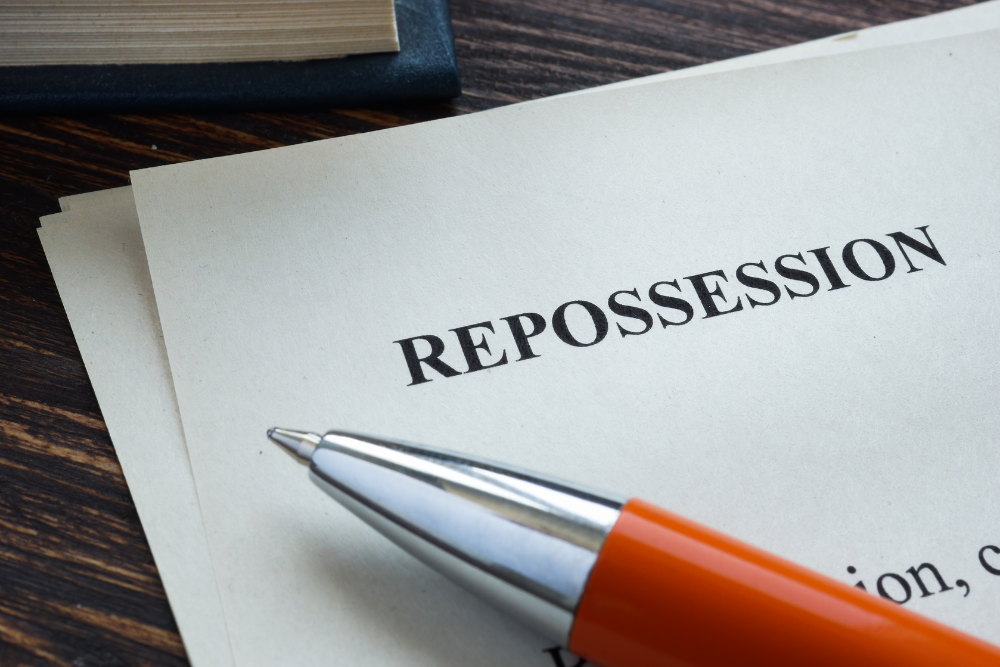How Long Does a Repo Stay on Your Credit Report?

A repossession indicated on the credit report can be a huge roadblock; it may hinder an individual from qualifying for new credit, obtaining a mortgage, or getting the most favorable interest rates. To avoid repossession and safeguard your credit standing, staying within your credit limits and using your credit wisely is best. In this guide, we will discuss how long a repo stays on your credit report, steps to take to minimize its impact, and strategies for maintaining financial stability.
How Long Does a Repossession Stay on Your Credit Report?
A repossession can be reported for up to seven years from the date of the first missed payment that could have led to repossession. The major credit bureaus, namely Experian, Equifax, and TransUnion, report that such a negative mark can have a particularly harsh bottom line on your credit score for most of that time, especially during the first few years.
Types of Repossession and Their Credit Impact

Voluntary Repossession
A voluntary repo is one that is, in essence, returning the financed vehicle back to the lender willingly. It will still hurt your credit score, but it could be viewed slightly more favorably compared to an involuntary repossession.
Involuntary Repossession
🚨 TUIC Errors + Low Credit Score?
CreditScoreIQ helps you build credit faster by reporting utility bills to all 3 bureaus—while you dispute errors.
Start Building Credit Today →An involuntary repo is one whereby the lender comes and takes the vehicle due to nonpayment of the loan. This is more damaging as it often carries added fees and legalities.
Anything Within Credit Limits To Avoid Repossession
Lower Credit Utilization Brings Financial Stability
Credit utilization – the amount of credit used compared to the total available – should stay below 30% for one to have a good credit score. High use can suggest financial distress, causing a troubling payment history and possibly repossession of whatever bought on credit.
Keep the Payments Up-to-date
Timely payments are crucial. According to the Consumer Financial Protection Bureau (CFPB), missed payments are the most commonly cited reasons leading to repossession. Set up automatic payments or reminders to stay away from defaulting.
Demonstrating Financial Responsibility
One of the other things lenders take a good look at when it comes to credit is some characteristic influences relevant to financial habits. Making sure you correspond to credit limits and making timely payments works wonders in bettering one’s creditworthiness.
The Financial Impact of Repossession
- Credit score drop: A repossession typically causes credit score drops, sometimes exceeding 100 points.
- Higher interest rates: Afterward, lenders usually consider that person as a high-risk borrower and charge those higher interest rates for loans and credit cards thereafter.
- Difficulty in getting approved for loans: Most lenders do not offer financing for people that show a repossession in history.
Steps to Remove Repossession from Credit Report
If repossession had a negative impact upon your credit score, follow these steps:
- Request a goodwill adjustment. Some lenders may allow the repossession to be removed from the credit report after you write a goodwill deletion with proof that you have had a responsible payment history.
- Dispute incorrect information. Like I’ve mentioned before, one way to sort out inaccurate information on your credit report is to get in touch with your credit bureau that maintains the record and request a deletion.
- Negotiate a Pay-for-Delete Agreement. In certain instances, the lender may choose to waive the repossession if you settle the outstanding debt.
- Create a Strategy for Rebuilding Credit. Responsible credit use is critical for effective credit repair. Loans should be paid on time. Credit utilization ratios should be kept low. Diversify the types of credit responsibly. If credit goes bad, take out a small loan and repay it on time.
What You Can Do to Prevent Repossession in the Future
To avoid repossession in the future, here are practical ways:
- Start Another Fund For Emergencies: A savings fund allows for out-of-loan-payment cash to sustain times of financial depths.
- Talk To The Lender: If you fall behind on your payments, let your lender know you might be needing a deferment, some type of help in managing an alteration of a payment plan.
- Check Your Credit Regularly: Keeping yourself informed by checking for and updating needed adjustments on your credit report will help ensure meeting your financial commitments or, if possible, with your credit and debt in its entirety.
It can take seven years for a financial delinquency to be removed from your report; however, you can dwell on steps to contain the damage. Staying under the credit limits and practicing sound financial management would help keep repossession at bay, working towards ensuring good health in years to come. If you’re having problems managing credit, consider asking an expert for guidance.
Manage this languid institution via a spelling:
“Have you been repossessed? Let us know some things you did to salvage your credit.”
Ready to Improve Your Credit?
Disputing TUIC errors is step one. Step two? Boost your score by reporting utility payments with CreditScoreIQ.
Get Started Now (Only $1 Trial) →3-bureau reporting • $1M identity insurance • Dark web monitoring
